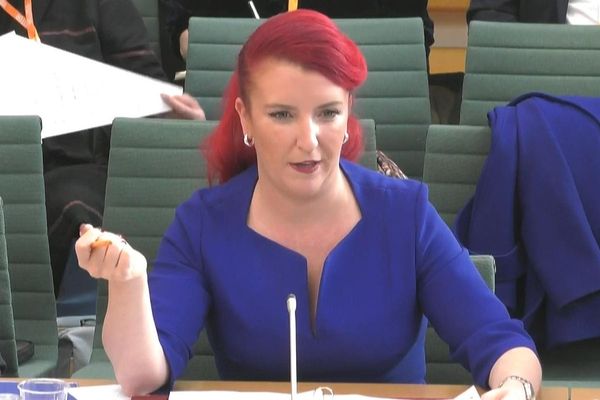Sometimes consistency is the best strategy.
While markets have been swinging in all directions this year, Benjamin Lau of Apriem Advisors keeps a steady eye on his clients' investment portfolios. Along the way, he picks some of the best ETFs for their core, bond and more aggressive allocations.
Lau, principal and CEO of Irvine, Calif.-based Apriem, says his firm is growing as a result. With $1 billion in assets under management, Apriem's client base primarily consists of retirees and pre-retirees.
It manages money for 725 clients with an average portfolio size of $1 million to $1.2 million.
Using Best ETFs To Add Spice
In the stock space, Lau uses a mix of active and passive strategies, while selecting funds with reasonable fees. On the fixed-income side, active strategies have an easier time beating the index, he says.
In addition, he likes to add some "spice" to the portfolio by finding solid areas of opportunity and carefully timing their investment. Regarding the current economic environment, Lau says the Federal Reserve continues to battle inflation, which has pushed bond and stock volatility higher.
"I don't think we're out of the woods yet," he told Investor's Business Daily. "I think it's too soon to think the Fed's going to pause or even cut back too much. The market's probably overreacting and been overly optimistic about the terminal (Fed funds) rate."
That said, he believes the financial situation for American households is still relatively healthy. With rates at 40-year highs, bonds are now offering attractive yields for investors to consider. Lau shared with his three best ETF picks for the current environment, addressing each of the three asset slices.
Best ETFs For Apriem Clients
As a core equity allocation, Lau likes VanEck Morningstar Wide Moat ETF. The $6.5 billion fund focuses on durable companies with strong balance sheets and lower volatility. It favors undervalued stocks over momentum stocks, while focusing on highly liquid names.
"I love the fact that they're systematic in the rebalancing; they're unemotional about taking money in," said Lau. "Recently, they've made a slight pivot from large value to more large growth."
The fund also holds some of the higher-volatility semiconductor names such as Teradyne. It also owns Microsoft, BlackRock, Wells Fargo, Biogen and Gilead Sciences.
MOAT was up over 3% in November, but is down 12% so far this year. It provides an SEC yield of 0.85% and charges an annual fee of 0.46%.
Best ETFs For Bonds
Lau's second recommendation is in the fixed-income area.
With rates at much higher levels, he's now more willing to take on more duration and credit risk with bonds. The Vanguard Tax-Exempt Bond ETF invests in investment-grade municipal bonds, which are federally tax-exempt. The $23.7 billion fund provides a yield of 3.65%. It charges a low annual fee of just 0.05%.
However, its duration (a measure of how bond prices move with interest rates) is relatively high at 6. This means investors need to keep in mind the interest-rate risk that comes with holding such a fund (when rates rise, the price of bonds falls).
The major advantage is its attractive yield and tax-free interest income on the federal level that comes with holding muni bonds. The fund was up 4.45% in November and is down 8.1% year to date.
Getting More Bold
For the more aggressive, "spice" slice of a portfolio, Lau likes the $6.8 billion VanEck Semiconductor ETF. It's a sector play and a bet on the global rebound in semiconductors, Lau says. The fund invests at least 80% of its assets in the stocks of the MVIS US Listed Semiconductor 25 Index. The index focuses on midsize companies in the semiconductor sector and is not diversified.
Top holdings include Taiwan Semiconductor Manufacturing, Nvidia, ASML Holding and Texas Instruments. SMH surged 11.75% in November but is down 30% this year.
The fund yields 1.03% and charges an annual fee of 0.35%.
"In the last two years now, it's been a risk-off trade," said Lau. "The timing for risk-on is probably soon, very soon."
His message to investors: "Be very careful and know what you own. Make sure you understand it and are buying companies and businesses that are durable and can handle whatever economic volatility comes our way."







